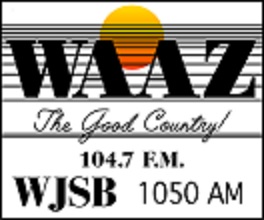Proposed Changes For The 2024-2025 Hunting and Fishing Seasons

Friday, May 17, 2024
The Alabama Conservation Advisory Board (CAB) will meet this Saturday, May 18, 2024, at the Pelham Civic Complex, 500 Amphitheater Road, in Pelham, Alabama. The meeting will begin at 9 a.m. The public is invited to attend.
The CAB assists in formulating policies for the Alabama Department of Conservation and Natural Resources (ADCNR), examines all hunting and fishing rules and regulations, and makes recommendations for their change or amendment. Below is a brief overview of the recommended changes for the upcoming 2024-2025 hunting and fishing seasons. A PDF of all proposed changes and season dates is attached. These changes are pending approval by the Board.
If Americans with Disabilities Act accommodations are needed for the meeting, please contact Betsy Jones at (334) 242-3486 or betsy.jones@dcnr.alabama.gov as soon as possible.
For attendees who wish to address the Board, please register on-site from 8-8:30 a.m. Attendees with printed information they would like to share with CAB members are encouraged to bring 16 copies of the material for distribution. Please ensure your name and contact information are included on each copy. If you are unable to attend the meeting, you may contact your local CAB representative directly.
Click here for contact information
Major Changes to 2024-2025 Hunting and Fishing Season – Proposed
 Waterfowl
Waterfowl
At Swan Creek WMA, it is recommended that the entire dewatering unit operate under a limited quota system, with walk-in and boat-in only locations allocated to selected hunters for each hunt. Weekend hunt selections would be held via a computerized limited quota selection system before the waterfowl season opening. Weekday hunt selections would be held in-person on the day of each hunt at the WFF District 1 office. Selected hunters will be allowed to bring up to three guests to participate in each hunt. This new system will manage hunter access and distribution to improve hunter safety and reduce hunting pressure, while still allowing more than 4,000 duck hunters to hunt the WMA.
In an effort to reduce pressure on the wintering waterfowl that utilize Mud Creek WMA, it is proposed that the use of air-cooled engines west of Highway 72 in Mud Creek WMA be prohibited between the dates of the first youth/veteran waterfowl hunt of the year in mid-November and the last youth waterfowl/veteran hunt in February. Reducing waterfowl disturbance caused by loud exhausts on these motors is expected to improve the quality of hunts and result in a higher number of waterfowl species utilizing this area and increased hunter success. Hunters will still be able to access the 2,200 acres of backwater by using outboard motors, trolling motors, paddling, or by driving vehicles in from the three roads that provide walk-in access to the backwaters of Mud Creek. Hunters have suggested the changes to ADCNR biologists. The proposed changes align with biologists’ observations of waterfowl disturbance and decreased harvest opportunity due to birds being repeatedly bumped from the area by hunters who use boats with air-cooled engines to scout the area.
The proposed changes for the Swan Creek and Mud Creek WMAs are intended to increase hunter satisfaction, promote hunter safety, and to better manage hunting pressure on the areas.
Other changes to waterfowl seasons include the following: Change dates for operation of airboats and air-cooled motors in Crow Creek and North Sauty refuges; and expand the Mobile-Tensaw Delta waterfowl management zone
 Alligator
Alligator
Alligator hunting continues to increase in popularity throughout the state. Proposed changes to the season include the expansion of the Lake Eufaula, Southwest, and West Central alligator management areas, an increase in the number of harvest permits issued in each management area, an allowance for a bonus management harvest permit to take an additional alligator for permit holders in designated management areas, and the inclusion of non-residents in the permit selection process.
Other changes to alligator season include the following: Changes to alligator management area season times and hunting hours, size and bag limits; changes to mandatory check station dates and times, harvest reporting and tagging, harvest permit eligibility, and license requirements.
Additional Major Changes to 2024-2025 Hunting and Fishing Seasons
- Five less days in all deer season zones due to calendar change
- Reduce creel limit of skipjack herring and prohibit the selling of skipjack herring from the waters of the Tennessee River
- Remove slot limit of largemouth bass on Little Bear Creek Reservoir
- Add fish, crustaccea, and mollusk to the prohibited species listed as injurious wildlife under the federal Lacey Act
- Add otter to the species eligible for landowner wildlife damage permits

